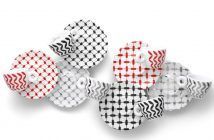Entry model costs around US$ 18,000 in the USA and, around here, the distributor EspressoArt is still setting the values due to large currency fluctuations.
Thanks to the strong growth in the consumption of specialty coffees in Brazil, EspressoArt, a distributor in the country of LaCimbali, Faema and Casadio coffee machine brands, decided that it was time to make Slayer espresso machines available to the domestic market at www.slayerespresso.com.
Slayer was created in 2007 by Jason Prefontaine in Seattle, USA – the specialty coffee mecca in the US – and acquired in 2017 by LaCimbali, a century-old Italian manufacturer that wisely chose to leave the two operations separate.
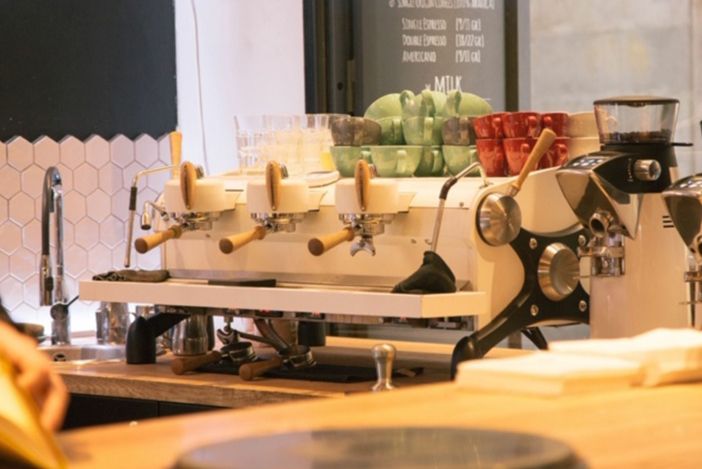
Café Espresso Slayer
The main feature of a Slayer machine is that it allows baristas to adjust the water pressure during coffee extraction. In this way, it is possible to change the speed of extraction throughout the process, allowing the flavors of the drink to emerge and explode in the taste buds. Unlike other machines, at Slayer, water stays in contact with coffee for 30 to 35 seconds, whereas in traditional machines, only 18 to 23 seconds. It is ideal to be used with high complexity specialty coffees.
“Espresso extraction is a violent process. It consists of passing water at very high temperature, under high pressure, inside a small coffee cake in a few seconds.”
“Slayer was born with the hipster barista DNA we know, unlike other brands in the Group. And buying the company was one of the right decisions, as it allows us to grow in a market previously dominated by La Marzocco www.lamarzocco.com”, explains EspressoArt director and founder Reinaldo Bongiovanni.
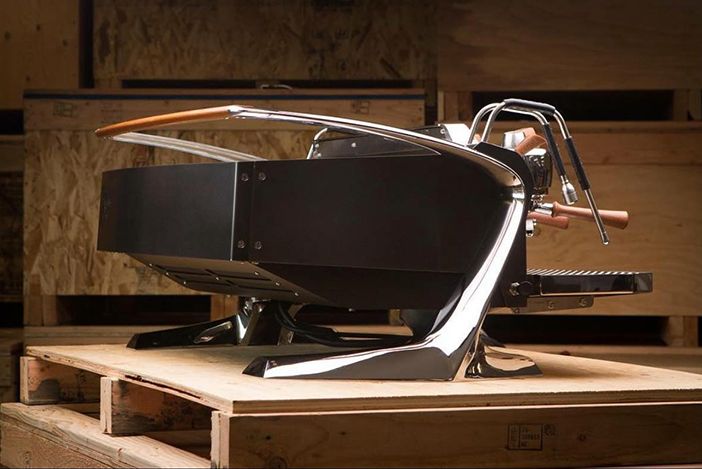
Slayer, em inglês, significa matador. Palavra que pode muito bem definir também seu design.
According to Bongiovanni, Slayer will not be rented, but only sold. “My goal is to sell between eight and ten machines in the first year of importation. I have to be realistic, since we are not out of the crisis and the prices of models are not cheap out there, let alone in our internal market,” he says.
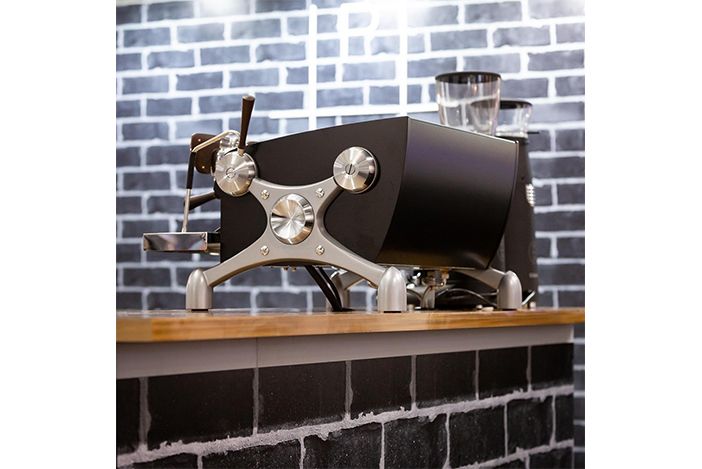
Slayer has two models: the top of the line Espresso and Steam, LP and EP.
Slayer produces only two models: Espresso and Steam, the latter being the least expensive. In the US, the entry model is around US$ 18,000. “And they match the top-of-the-line models of the competition,” says Reinaldo. On the other hand, Espresso is costing around US$ 35,000 and can be customizable. At that, obviously, if this customer has the financial availability and time left, as customization can take up to 90 days. We are not closing the prices that will be charged in Brazil yet, due to exchange rate volatility, but we have already probed the market and I can guarantee that there are already a lot of people interested,” says Reinaldo.
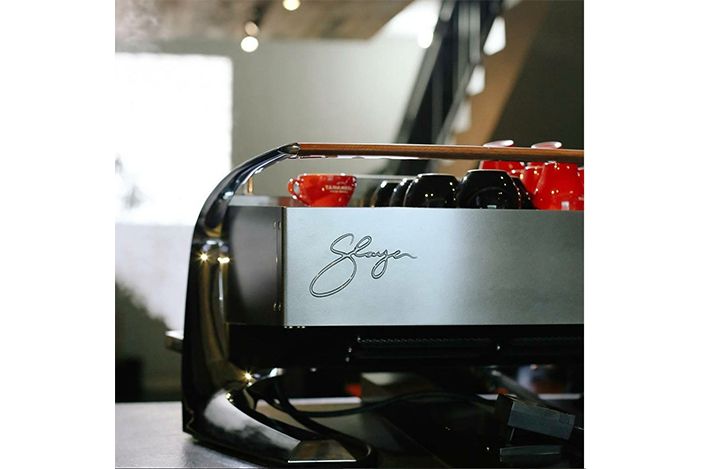
“I compare Slayer to Lamborghini,” says Bongiovanni
In order to receive Slayer in Brazil, the executive had to create an exclusive showroom inside the office, demanded by the Seattle staff, which is not yet finalized. “Once they arrive and are installed, we will invite the specialty coffee market people to a series of events. The idea is that people bring their microlots to check how they behave in the equipment. We also wish to demonstrate all the features that the machine offers,” he says enthusiastically.
If all goes according to the plan, Slayer will be presented to the market at the next Belo Horizonte International Coffee Week, at the EspressoArt stand.
EspressoArt
EspressoArt was created six years ago by Reinaldo to offer sale, rent and technical assistance for coffee machines. They currently work with LaCimbali, Faema, Casadio, Ban mills, as well as small machines like De Longhi.
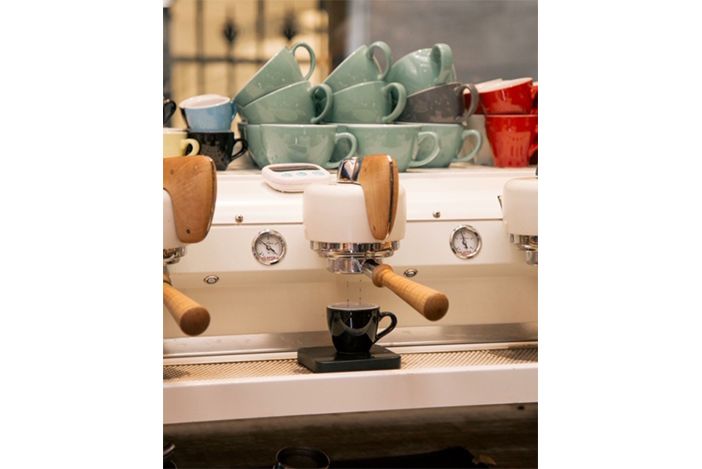
Café Espresso Slayer
The company has been growing at an average ratio of 12% to 15% per year, mainly in the machine rental market. “Our goal is to maintain this growth for years to come and make the FAEMA brand as well known as LaCimbali in Brazil. Thus, we brought an exceptional model, the 61, launched in 1961, whose design was in charge of Giorgetto Giugiaro, an expert in the creation of more than 200 cars, many of them iconic as Alfa Romeo Brera, BMW M1, Audi 80, Bentley SSX98, among many others.
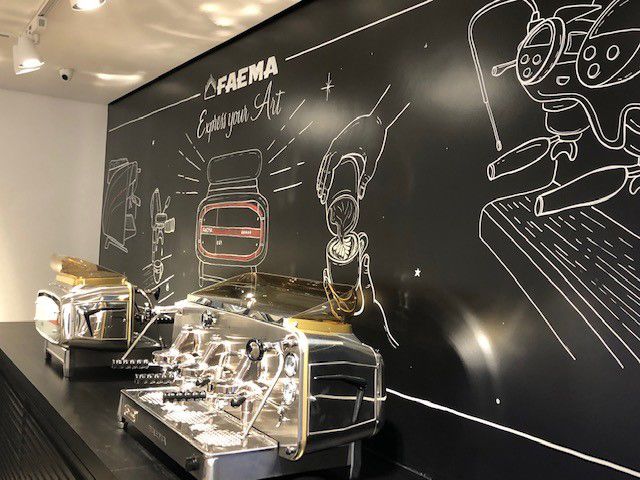
FAEMA 61 was designed by the legendary Giorgetto Giugiaro.
It is good to note that only the exterior of FAEMA 61 is vintage. “The espresso coffees taken at 61 are wonderful, thanks to the machine’s added technology,” explains Bongiovanni.
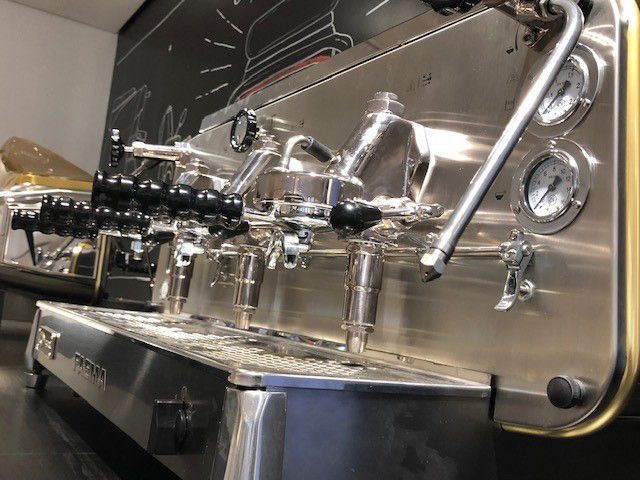
FAEMA 61 was designed by the legendary Giorgetto Giugiaro.
Of the 700 machines leased, about 80% are from LaCimbali. “This is a feature of the Brazilian market. In Italy, for example, the business is based on sales,” explains Reinaldo. There are currently 20 employees working in it, including 13 technicians, providing technical assistance throughout Brazil.



